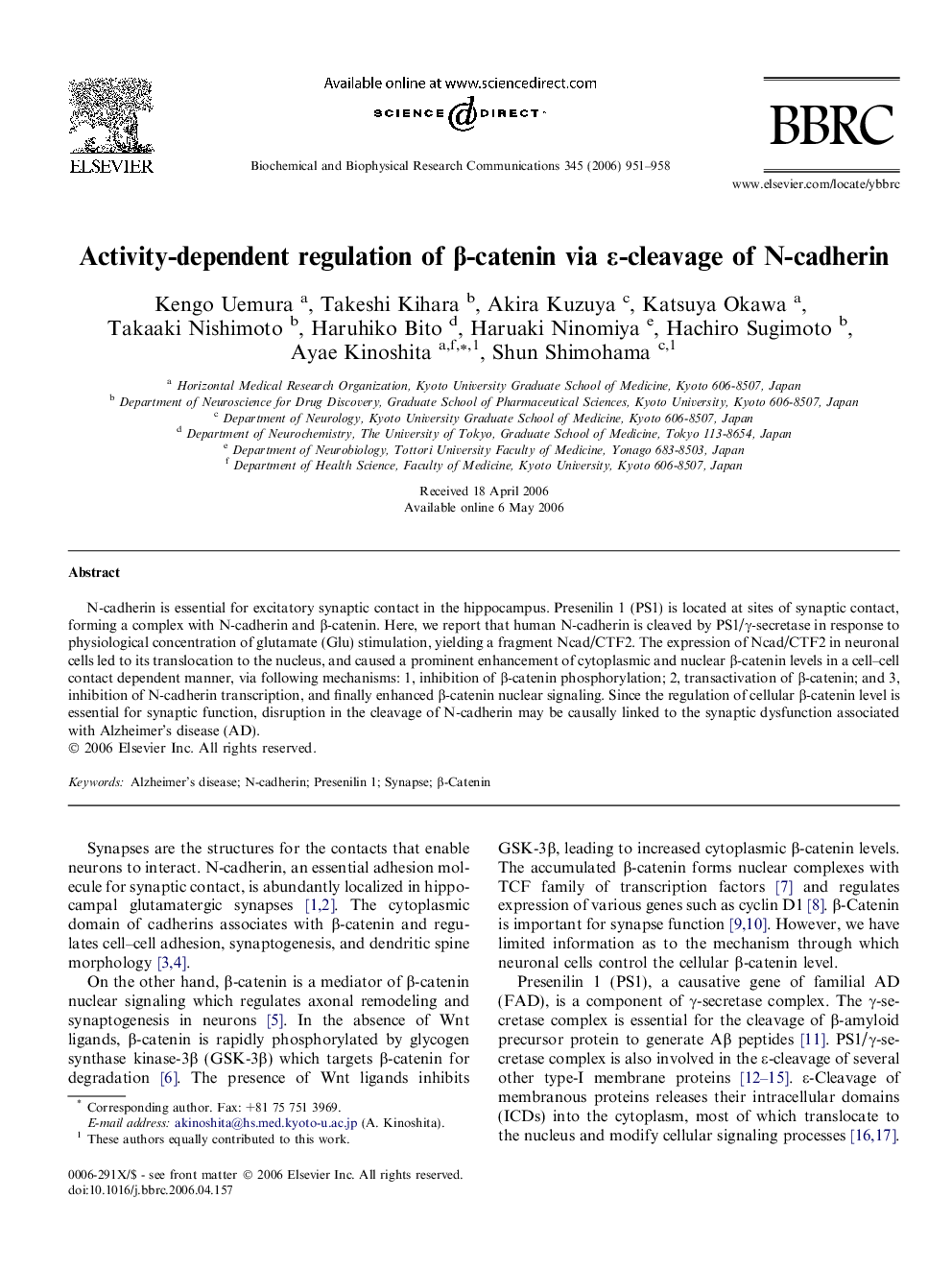| Article ID | Journal | Published Year | Pages | File Type |
|---|---|---|---|---|
| 1939687 | Biochemical and Biophysical Research Communications | 2006 | 8 Pages |
N-cadherin is essential for excitatory synaptic contact in the hippocampus. Presenilin 1 (PS1) is located at sites of synaptic contact, forming a complex with N-cadherin and β-catenin. Here, we report that human N-cadherin is cleaved by PS1/γ-secretase in response to physiological concentration of glutamate (Glu) stimulation, yielding a fragment Ncad/CTF2. The expression of Ncad/CTF2 in neuronal cells led to its translocation to the nucleus, and caused a prominent enhancement of cytoplasmic and nuclear β-catenin levels in a cell–cell contact dependent manner, via following mechanisms: 1, inhibition of β-catenin phosphorylation; 2, transactivation of β-catenin; and 3, inhibition of N-cadherin transcription, and finally enhanced β-catenin nuclear signaling. Since the regulation of cellular β-catenin level is essential for synaptic function, disruption in the cleavage of N-cadherin may be causally linked to the synaptic dysfunction associated with Alzheimer’s disease (AD).
